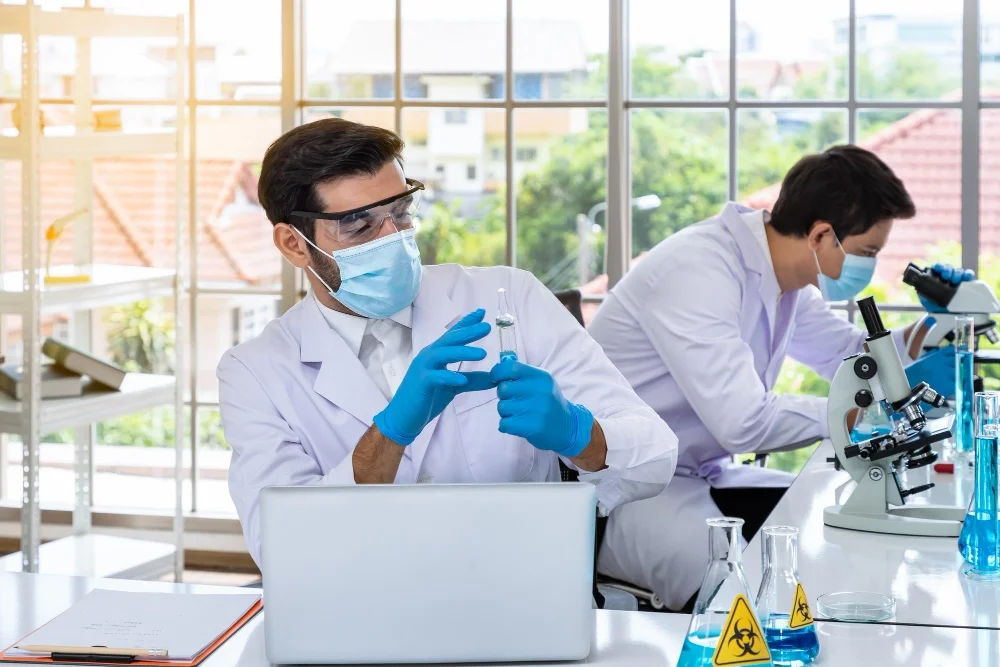In recent years, paramedical science degrees have moved from being niche options to mainstream career paths in India. For many students seeking hands-on healthcare roles without pursuing an MBBS, a BSc in Paramedical Science offers an excellent blend of academic rigour, practical training, and career potential. At Diagnopein Paramedical Institute, we believe understanding the full picture is essential. Here’s everything you need to know about the BSc Paramedical course—its structure, scope, and how it can shape a rewarding healthcare career.
Discover More Details: https://www.diagnopeinparamedical.com
What is a BSc Paramedical Science Degree?
A Bachelor of Science in Paramedical Science is an undergraduate degree (typically 3 years) that trains students in various allied health fields such as medical laboratory technology, radiology, imaging, physiotherapy, dialysis, and other diagnostic services. Students combine theoretical coursework with practical lab/clinical exposure to gain hands-on skills.
Key Course Details
| Feature | Typical Attributes |
|---|---|
| Duration | 3 years (6 semesters) |
| Eligibility | Class 12 pass with Science subjects – Physics, Chemistry, Biology; minimum percentage may vary by institute |
| Core Subjects | Anatomy & Physiology, Microbiology, Pathology, Diagnostic Imaging, Clinical Biochemistry, Radiographic Techniques, Health & Safety, etc. |
| Practical Training | Labs, diagnostic center visits, hospital internships, case studies |
| Assessment Methods | Continuous internal evaluation, semester exams, practical and viva-voce, project work |
Specializations & Course Variants
While the base course is broad, many institutions—including Diagnopein—offer specializations that allow students to focus on areas of interest:
-
Radiology & Imaging Technology
-
Medical Laboratory Technology (MLT)
-
Dialysis Technology
-
Physiotherapy or Therapy-based Allied Sciences
-
Dental Hygiene / Dental Assistance
-
Operation Theatre Technology (OTT)
These specializations enable more targeted skills and often enhance employability in those niches.
Why Pursue This Degree?
-
High Demand for Allied Healthcare Professionals
Public and private hospitals, diagnostic labs, imaging centers, clinics, rehabilitation centers, and emergency care units all heavily rely on paramedical science graduates. -
Faster Entry Into Workforce
Compared to many medical degrees, paramedical programs are shorter and more job-oriented. You can complete your training and begin working in roles like lab technician, radiology technician, or dialysis specialist much sooner. -
Affordability & Return on Investment
Degree courses are more affordable than many long medical or professional courses. With reputation and specialization, graduates often see good returns through salaries, especially in urban centers or private healthcare settings. -
Scope for Specialization & Growth
Post-graduation, alumni can pursue higher studies (e.g., MSc, PG Diploma), leadership roles (lab supervisor, imaging coordinator), or even domain shifts (transfer to research, public health, or overseas roles).
Career Opportunities & Salary Expectations
| Job Role | Typical Employers | Estimated Entry Salary (India) |
|---|---|---|
| Lab Technician / Clinical Laboratory Technologist | Diagnostic labs, hospitals, clinics | ~ ₹15,000–₹25,000/month initially; increases with experience & specialization |
| Radiology / Imaging Technician | Imaging centers, hospitals, private diagnostic chains | Higher than basic lab roles; often better in metro areas |
| Dialysis Technician / OT Technician | Kidney care centers, surgery wings, hospitals | Similar or slightly higher depending on skill & institution type |
| Physiotherapist / Rehabilitation Therapist | Hospitals, sports clinics, wellness centers | Good scope; salaries vary widely based on qualification & region |
Over time, as you gain experience, take additional certifications, or move into supervisory/managerial roles, earning potential improves substantially. International opportunities can further boost income.
How to Choose the Right Institute & Course
To make the most of your degree, keep these factors in mind:
-
Accreditation & Recognition: Ensure the institute is recognized by relevant regulatory bodies and has good referrals.
-
Infrastructure & Clinical Exposure: Labs, diagnostic centers, hospital tie-ups for internships matter a lot.
-
Specialization Options: If you have a field of interest (e.g. radiology or physiotherapy), check whether the course offers that focus.
-
Placement Support: Institutes that offer career counseling, internships, and placement support help in transitioning to job roles.
-
Fee Structure & Financial Aid: Compare fees, explore scholarships and loans, especially if cost is a concern.
Why Diagnopein Paramedical Institute Is an Excellent Choice
At Diagnopein, we strive to offer:
-
Recognized BSc paramedical programs with specializations aligned to industry demand
-
Strong practical training with diagnostics labs and live clinical exposure
-
Experienced faculty with hands-on healthcare field experience
-
Flexible payment options and placement support to ensure you step confidently into your career
Final Thoughts
A BSc Paramedical Science degree in India offers a strong foundation for a future-driven healthcare career. With rising demand, growing infrastructure, and increasing awareness of diagnostic and allied health services, now is an excellent time to pursue this path.
If you’re looking for a career that combines purpose, stability, and growth—without the long timeline of a full medical degree—paramedical science might be your best option.
Interested in learning more or enrolling? Visit Diagnopein Paramedical Institute to explore courses, fees, eligibility, and start your healthcare journey today.






